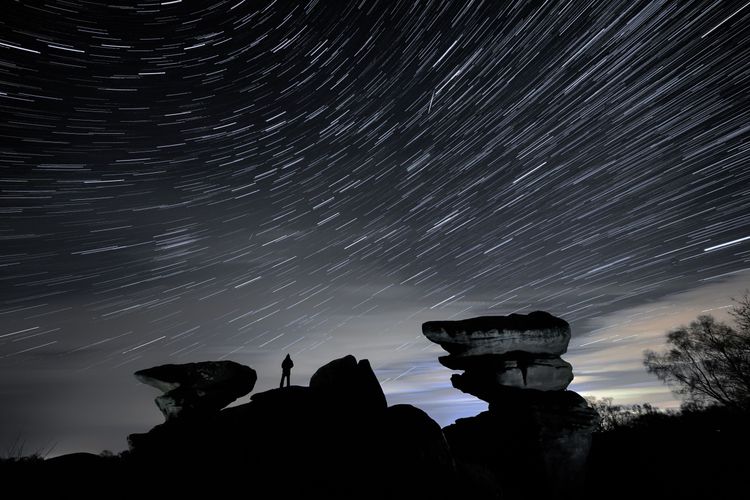Stargazers have perfect opportunity to witness biggest meteor ...

The Geminid Meteor Shower will be on display on December 13 (PA)
Irish stargazers have the opportunity to witness one of the biggest astronomical displays of the year tonight, known as the Geminid Meteor Shower.
In 1983, Harvard astronomer Fred Whipple discovered a new comet ‘3200 Phaethon’ of only 5km in width using NASA’s Infrared Astronomical Satellite.
The dead comet, which may have lost its ices and other volatiles after constantly passing by the sun gives off tail-like particles as it approaches the sun and the growing heat gives rise to cracking and splintering of the object.
Once a year, in December, the Earth moves through that debris trail, leading to the spectacle known as the Geminid meteor shower, so named because the direction of the meteors appears to come from the constellation Gemini.
Due to very little cloud cover tonight, stargazers are being told to take part in the Nationwide Geminid Watch, by simply going outside and look up.
Astronomy Ireland said: “Count how many meteors you see every 15 minutes. No special equipment is needed, and you can look anywhere in the sky.”
As Earth moves through clouds of dust leftover from comets, the particles fall into our atmosphere and burn up, creating spectacular streaks of light in the sky, known as meteors or shooting stars.
If you trace back the path of a Geminid, you will find that it appears to come from a point in the south east.
Meteors will ‘zip’ across the sky in one second or less.
Astronomy Ireland said: “Don’t confuse them with manmade satellites which take a minute or more to cross the sky.”
There are so many satellites these days that you will probably see more of them than meteors, they informed.
“They are becoming a nuisance to be honest but fortunately meteors are hundreds of times faster than satellites so you won’t confuse the two,” Astronomy Ireland added.
Satellites move at roughly the same pace that high flying aircraft cross the sky.
Stargazers are being asked to email [email protected] with their report and to include their name, location, and the night they observed the comet.















































